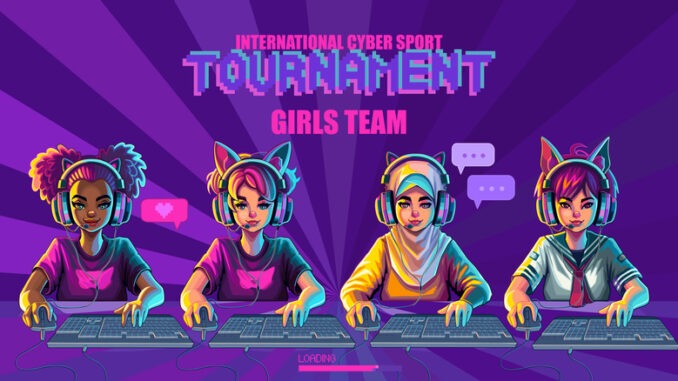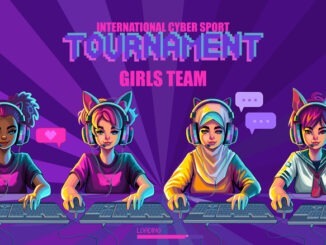
While out-dated images of ‘gamer’ personas can conjure concerns about isolation and addiction, as Gary Henderson points out, competitive gaming encourages teamwork, communication and confidence building
Esports as a term is still widely misunderstood especially within education circles. Often the mention of esports conjures up images of solitary children sitting in darkened rooms with headphones on, screaming at their monitor for hours on end, becoming socially distant, reducing concentration levels and even becoming addicted to their games. Concerned cries in relation to “screentime” and “focus” might also arise, but this is far from the truth.
Esports, or competitive video gaming, stands apart from solo gaming in several significant ways. While solo gaming typically involves an individual playing video games alone, often for leisure or personal achievement, esports is a structured, team-based activity that emphasises competition, strategy, and collaboration.
Unlike solo gaming, where the focus is primarily on personal enjoyment and mastery of the game, esports involve organised competitions, often with professional teams and significant audiences. These events require players to work closely with their teammates, develop sophisticated strategies, and communicate effectively under pressure. Additionally, esports competitions are governed by strict rules and regulations, like traditional sports, and often feature large-scale tournaments with substantial prizes and sponsorships. This level of organisation and professionalism distinguishes esports from casual solo gaming, transforming it into a legitimate sport with its own culture, fanbase and career opportunities.
The benefits of teamwork
For schools, there are clear benefits of engaging with esports including fostering teamwork and collaboration, and the many other soft skills which can be delivered through esports, as well as increased student engagement in school and the potential to prepare students to enter an industry which is larger than the music and movie industries combined. Sometimes the students which esports most appeal to are those who might otherwise be marginalised or feel separate from the wider school community, so through esports, they can feel more involved, valued and included.
I have seen shy and reserved students become instantly energised and engaged when leading the setup of an esports game or when in the midst of a team wide push to capture an objective. Speaking with students engaged in esports provision in their school or college, it is very hard to miss the enthusiasm they display, and such enthusiasm harnessed within a school to develop leadership, communication, collaboration and other soft skills can only be a good thing.
You don’t need all the bells and whistles
Now some may be concerned about the cost of getting started with esports having seen the shiny, neon light filled game suites which some colleges have, but this need not be the case. To offer esports doesn’t require the latest in gaming technologies and all the cost that comes with it, in fact, a modest PC will be able to run some esports games, such as Rocket League.
In my school, the gaming machines are indistinguishable from normal PCs to avoid any issues where some students are taught in the gaming labs, so the existence of gaming level machines doesn’t need to involve garish neon lights and fancy looking computers. All that is therefore needed is enough PCs, including the relevant game software, for your players.
So, if playing in the British Esports Federations Champs tournament, for example, playing Rocket League would only require 3 PCs capable of running the software, or 6 PCs if you want to play matches inside your school. Once you have the equipment you can easily set up games within your school or maybe across a school group or Multi Academy Trust (MAT), or even compete nationally in the British Esports Federations Champs tournament, going up against schools and colleges across the UK.
Esports has such potential in schools, engaging students and helping to develop the soft skills which are likely to be so important in the world of tomorrow. Hopefully, the above will at least have got you reconsidering esports. For further information, the British Esports Federation has plenty of resources and guides on their website at: https://britishesports.org/
It would be great to see the number of schools taking up esports continuing to increase and to see the narrative in relation to esports change to embrace the positive impact it can have on students and on schools.


Be the first to comment